Welcome to the Hands & Voices Military Project! We’re glad you’re interested!
Military Families with Deaf or Hard of Hearing Children
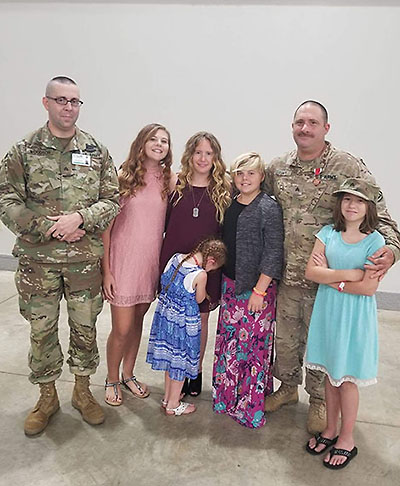
GOALS OF THE HANDS & VOICES MILITARY PROJECT:
We aim to connect your family to your local Hands & Voices Chapter to help you feel prepared to navigate through each new duty station. Our hope is parents will find more ease in transitioning the medical and educational homes for their children with this connection.
We have a growing support group on Facebook, specifically for military families with children with hearing loss. (https://facebook.com/groups/
HandsVoicesMilitarySupport/)
This virtual community is a place to share experiences, ask questions, and help others with questions. Learn more about duty stations, and create new and lasting friendships with families walking a similar journey. We search for resources to share that are beneficial to military families. General information about hearing loss is also shared to help grow your knowledge of your child’s hearing level.
Here at the Hands & Voices Military Project, we want to listen to your stories and know your successes and challenges. We want to address areas of concern and shine a light on the unique needs of your family. We strive to create a unique community to help you feel prepared to navigate through each new duty station.
Helpful Links for Military Families
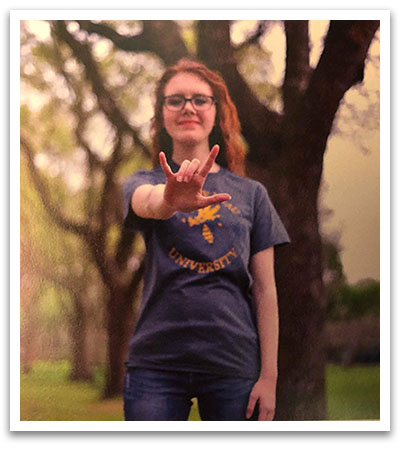
Find a Local Hands & Voices Chapter
Military OneSource: Support for Families with Special Needs Resources
Extended Health Care Option (ECHO)
Overview of the major communicating options
Know your options. This Language and Communications chart describes the significant communication modes/methods so you can make the best choice for your child.
Tricare
H.R.2670 - National Defense Authorization Act for Fiscal Year 2024
The newly passed NDAA, which provides hearing aid coverage for some children of Retirees. Found under Title VII Health Care Provisions, Subtitle A Tricare and Other Health Benefits, Section 703 (about ⅕ of the way down the page)
Learning to advocate for your child during transitions
Hands & Voices ASTra files
Many families struggle in their attempts to improve educational programs for their children, and the support they find is usually not experienced with the unique issues facing Deaf or Hard of Hearing kids. Hands & Voices is often asked to provide educational advocacy support to families (and professionals) who have questions about special education law and its applicability to students who are deaf or hard of hearing.
In our H&V chapters, it's not at all uncommon to find an H&V trained advocate supporting a family who is struggling with their child's educational services and communication access. H&V chapters can provide families with advocacy resources, support, and in some cases, attend an IEP meeting with a family. If you would like to request support, complete the H&V Educational Advocacy Request Form.
Military Interstate Children’s Compact Commission (MIC3)
The Military Interstate Children’s Compact Commission (MIC3) provides consistency across states and was drafted with the intent to avoid conflict with existing state codes where possible. It replaces widely varying policies that affect transitioning military students and supports uniform treatment for military-connected students as they transfer between school districts and member states. While the Compact is not exhaustive in its coverage, it addresses the key issues encountered by military families:in the areas of eligibility, enrollment, placement and graduation.
Wrightslaw on Military and Department of Defense Special Education
Overview of current Department of Defense Education Activity (DODEA) school special education policies for those whose children are using schools located on their installation
Partners in Promise
Exceptional Families of the Military
PCS checklist: Checklist to organize your child’s transition to a new medical and educational home.
All About My Child: Document to introduce your child to his/her new provider to ensure all of their medical needs are met.
Hands & Voices Chapters and Professionals
GOALS OF THE HANDS & VOICES MILITARY PROJECT:
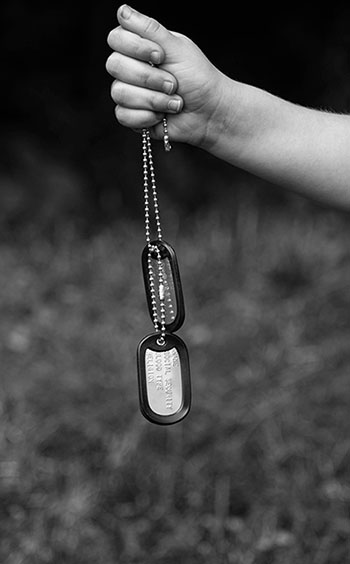
Our main objective is to offer awareness and provide support to Hands & Voices chapters across the United States, as well as in remote and distant locations. We strive to help local chapters understand the impact the transient military lifestyle has on the family so they can better support the military population.
“Military children may change duty stations at least twice during their high school years and may attend six to nine different schools between kindergarten and 12th grade.” (Lewis-Fleming, 2014)
A few challenges related to these frequent moves are navigating new homes, neighborhoods, schools, separations from extended family, and the absence of a parent during times of deployments. Coping with the effects of a significant life change each time a family relocates is a common occurrence for our families. Consider how raising a child with a hearing loss in a military family requires extra effort when one must reestablish their child’s medical and educational team each time they move.
We consider it a privilege to connect families across the globe to their state’s Hands & Voices Chapters. We hope this will help alleviate some of the stresses and strains involved when navigating a new geographical area.
“Don’t ask us when we’re leaving; ask how long you have us for.” -A military spouse
MILITARY CULTURE:

Since the birth of this country, there have been service members fighting for our freedom. We are all probably familiar with the story of how our militia fought for our freedom and founded a new country. Through the bravery of men and the women and families who supported them fighting for our freedom, the United States was established. A lot has changed in 200 years, but one thing remains, we will always have servicemen and women fighting for our freedom. As times change, our Active Duty members’ responsibilities change, and as a result, the roles of military spouses have also evolved. Like many other cultures, we are a diverse group under an umbrella group called the Armed Forces. One thing we all have in common is we experience stressors related to frequent moves and deployment. Though there is much to celebrate about our resiliency, these situations are known to create challenges, stress, and anxiety.
TANGIBLE WAYS TO SUPPORT MILITARY FAMILIES WITH DEAF/HARD OF HEARING CHILDREN:

- Get to know your local Exceptional Family Member Program (EFMP) staff. EFMP is a program run by each military branch to ensure military dependents with special needs have access to all of the resources they need when they accompany their Service Member to a duty station. It is a mandatory program within the military. EFMP offices can give information to incoming families regarding local groups designed to support their children, so by connecting with your local office, you can raise awareness that you are a resource for these incoming families. To find contact information for your local EFMP office, search the web for “EFMP + the name of your closest military base”.
- Teach military families with D/HH children to advocate for their children and point them to advocacy resources, including local groups that advocate for D/HH children within educational settings. Because of the transient nature of military life, it is vital that D/HH children get the support and services they need quickly upon arrival at a new duty station. Parents who understand how to advocate are better able to ensure this for their child.
- Connect families with local resources for D/HH children and their families. Trying to find a new medical and educational home is much easier and faster when you have input from locals who understand the needs of a D/HH child. It’s also nice to be able to connect with other local families with D/HH children.
- Ensure that families of recently diagnosed children have unbiased access to information on all languages and primary modes/methods of communication with their D/HH child. Because the responsibility for maintaining continuity of the child’s communication access throughout multiple moves lies primarily on the parents, it is vital that they are empowered to make a truly educated choice that meets that particular child’s needs.
Helpful Links for Hands & Voices Chapters and Professionals Supporting Military Families:
Teaching Families to Advocate for Their D/HH Children:
Hands & Voices ASTra files
Many families struggle in their attempts to improve educational programs for their children, and the support they find is usually not experienced with the unique issues facing Deaf or Hard of Hearing kids. Hands & Voices is often asked to provide educational advocacy support to families (and professionals) who have questions about special education law and its applicability to students who are deaf or hard of hearing.
In our H&V chapters, it's not at all uncommon to find an H&V trained advocate supporting a family who is struggling with their child's educational services and communication access. H&V chapters can provide families with advocacy resources, support, and in some cases, attend an IEP meeting with a family. If you would like to request support, complete the H&V Educational Advocacy Request Form.
Military Interstate Children’s Compact Commission (MIC3)
The Military Interstate Children’s Compact Commission (MIC3) provides consistency across states and was drafted with the intent to avoid conflict with existing state codes where possible. It replaces widely varying policies that affect transitioning military students and supports uniform treatment for military-connected students as they transfer between school districts and member states. While the Compact is not exhaustive in its coverage, it addresses the key issues encountered by military families:in the areas of eligibility, enrollment, placement and graduation.
Wrightslaw on Military and Department of Defense Special Education
Overview of current Department of Defense Education Activity (DODEA) school special education policies for those whose children are using schools located on their installation
Partners in Promise
Exceptional Families of the Military
PCS checklist: Checklist to organize your child’s transition to a new medical and educational home.
All About My Child: Document to introduce your child to his/her new provider to ensure all of their medical needs are met.
References:
Lewis-Fleming, G, MSW, ACSW, FAHM, (2014) Reaching Across Boundaries: A Military Providers and Public Schools Partnership on Behalf of Children with Special Needs, Military Medicine, 179, 8:920.
The H&V Military Project Team:
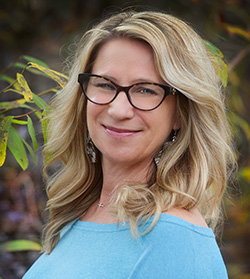
Chelsea Hull - Co-Lead,
Founding Member,
Board Member (Navy Spouse)
chelsea.hvmp@gmail.com
Chelsea's involvement with Hands and Voices since 2003 reflect her longstanding dedication to improving the lives of individuals with atypical hearing. Her mother’s deafness (and additional medical needs) inspired her career in the field of Deaf Education.
Since 2010, Chelsea has embraced the role of a military spouse, demonstrating resilience and adaptability in various settings. As a mother of two children with Autism and ADHD, she brings a unique perspective to her work, combining professional expertise with personal experience.
Chelsea Hull has a BA and MA in Deaf Education and has level two certification with the Advocacy Support and Training (ASTra), where she continues to champion the educational rights for military families within the Hands & Voices community. In her free time, you can find Chelsea taking in a sunset, discovering a new Thai restaurant or soaking in a hot tub.

Amanda McGowen - Co-Lead,
Board Member
(Coast Guard Spouse)
amanda.hvmp@gmail.com
Amanda graduated from the University of Portland in Portland, Oregon, in 2010 with a Bachelor’s degree in Business Administration focusing on Economics. That year she also met her future husband, Nick, and when he returned from an overseas tour in 2011/2012, they married.
Amanda is the parent of three Hard of Hearing children, including a nine-year-old and seven-year old identical twins. The twins were found to be Hard of Hearing after both referred from their newborn hearing screenings; the oldest developed bilateral hearing loss at age three, after passing newborn hearing screening and testing within average limits in booth testing following the twins’ diagnoses.
Following their oldest child’s diagnosis, the McGowens started attending more of the local Hands & Voices events in Maine, where they were stationed at the time, and a short time later Amanda joined the Maine chapter of Hands & Voices as a board member. From there she was introduced to the Hands & Voices Military Project and is now a Board Member.
Amanda and Nick have taken classes in ASL and hope their children will continue to be interested in ASL in addition to their main method of communication (AVT). However, since the kids display different learning styles and strengths already, they may utilize additional communication methods in the future. The family (and their two cats!) recently left the suburbs of Philadelphia to head back to Burlington, VT, where Nick was stationed for the second time with the US Coast Guard. They have previously been stationed in Pennsylvania, Maine, Washington, Alaska, Vermont, and Oregon.
 Nicole Rogers
Nicole Rogers
Board Member (Air Force Spouse, Retired)
nicole.hvmp@gmail.com
Nicole graduated from the Florida School of Massage in 2004, and has been a practicing Licensed Massage Therapist since. As a military spouse she’s had the opportunity to work and learn in a variety of settings across multiple states. She and her husband, a retired 22-year Air Force veteran, married in 2006.
Nicole is the mother of two daughters, the youngest of whom is severe to profoundly deaf. After failing her newborn hearing screening in Okinawa, she was medevac ’d to Tripler Army Medical Center in Hawaii, where she was diagnosed with Auditory Neuropathy Spectrum Disorder (ANSD). When she was eight months-old, the family was reassigned to Luke AFB, Arizona through the Exceptional Family Medical Program (EFMP).
While in Arizona, Nicole became involved with Hands & Voices events and joined the local chapter. Upon relocating to Alaska, a Hands & Voices connection introduced her to Chelsea Hull, and the Hands & Voices Military Project, further strengthening her advocacy efforts.
Since becoming part of the Deaf and Hard of Hearing community, Nicole has built strong connections and friendships. She is passionate about networking and helping families find the support they need. She is excited to be a part of the Hands & Voice Military Project Board and looks forward to supporting military families on their journeys.
 Abigail Kennedy
Abigail Kennedy
Board Member (Navy Spouse)
akennedy.hvmp@gmail.com
Abigail Kennedy is a devoted Navy spouse and a mother of four children on the autism spectrum, including her second child, who is Deaf. Abigail is a passionate advocate for families navigating the Deaf and Hard of Hearing (DHH) journey. Her family is actively learning American Sign Language (ASL) to build deeper, more inclusive communication at home and in the community. Abigail proudly serves on the board of the Hands & Voices Military Project, where she helps support military families through the unique challenges of frequent transitions, deployments, and system navigation. Drawing from her own lived experience, she is deeply committed to ensuring that every family ’s voice and choices are heard, respected, and supported. Her mission is to empower others with the tools, knowledge, and confidence they need to advocate for their DHH children, no matter where military life takes them.
Board Member (Marine Spouse) - Vacant
Board Member (Space Force Spouse) – Vacant
*Interested in a position on the board? Please contact us at:
handsandvoicesmp@gmail.com.
Advisory Board Members

Jenny Swan
Founding Member
(Army Spouse - Retired)
jenny.hvmp@gmail.com
Jenny is a Co-Lead and Founding Member of the Hands & Voices Military Project and a Guide-By-Your-Side for Maryland/DC Hands & Voices. She holds a MA in Elementary Education from the University of Phoenix with undergraduate degrees in Psychology and Interdisciplinary Studies from Virginia Tech. Jenny and her husband Jon, who is a Retired Servicemember from the Army, have been married for 22 years. Jenny has homeschooled their 5 children, one who is a cancer survivor and another who is deaf, for the past 13+ years. She loves figuring out what works for her children and watching them thrive.
Jenny has been passionate about advocating for military families since she became part of that community. Through the identification of her youngest son as deaf and her middle son’s battle with cancer, she found she really enjoyed supporting families of Deaf/Hard of Hearing children and helping them figure out what works for their children, especially within the Military and pediatric cancer communities. Jenny is thrilled to work with the Hands & Voices Military Project Leadership Team and hopes to bring awareness and support for the challenges military families of DHH children face.
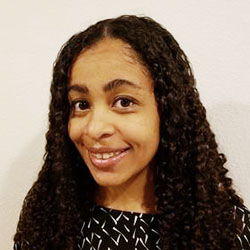
LaShawna Sims – Inaugural Member
(Air Force Spouse - Retired)
lashawna.hvmp@gmail.com
The daughter of a retired Navy SEAL, LaShawna is no stranger to military life. She was formally a co-lead for the Hands & Voices Military Project and bilingual Parent Guide for the Nevada Hands & Voices Guide By Your Side program. She holds a Bachelor of Business Administration from Northwood University. She and her recently retired husband have been married since 2009 and are the proud parents of two sons, one deaf and one deaf plus.
Recognized for her work supporting military families by the Armed Forces Insurance Military Spouse of the Year Program, she was awarded the title of 2019 Armed Forces Insurance Nellis Air Force Base Military Spouse of the Year.
When she is not supporting families, LaShawna enjoys spending quality time with her family on the golf course, homeschooling her sons, singing, sewing, learning American Sign Language and adding to her collection of cacti and succulent themed items.
Disclaimer: The views expressed are those of the board members and do not represent any branch of The United States Military, The Department of Defense, The Department of Homeland Security or The United States Government.

 Home
Home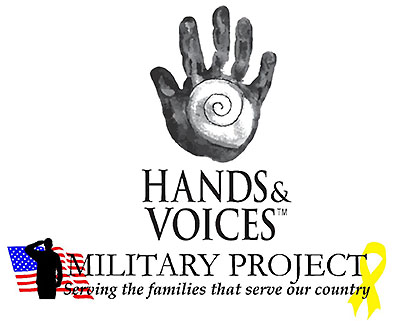







 Nicole Rogers
Nicole Rogers Abigail Kennedy
Abigail Kennedy

